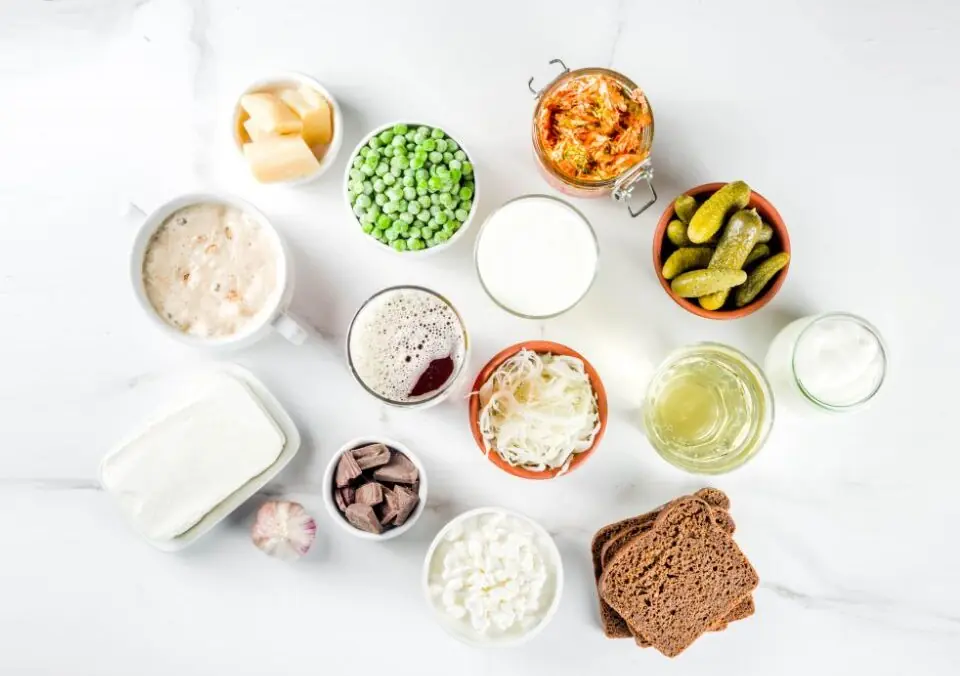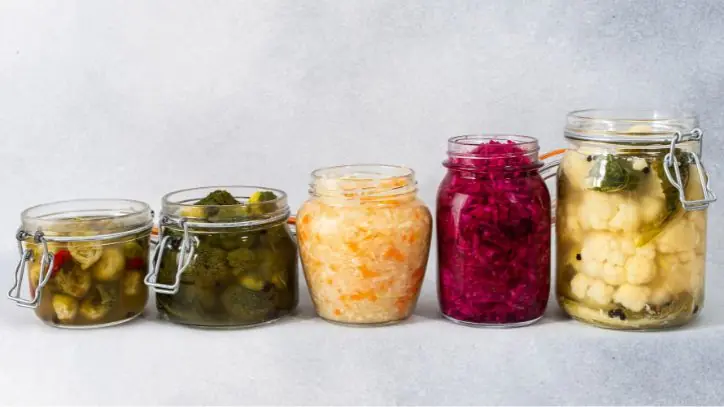Blog
Fermented Foods are Full of Health Benefits

In recent years, there has been a considerable shift in how we perceive food and its effects on our health. While superfoods tend to dominate conversations about nutrition, fermented foods are gaining traction for their incredible array of health benefits. From yogurt to kombucha, these foods not only tantalize our taste buds but also provide essential probiotics that contribute to our overall well-being.
Understanding Fermentation: The Science Behind the Magic
To grasp the full scope of the benefits of fermented foods, it’s crucial to understand the process of fermentation itself. Fermentation is a natural preservation method that has been used for thousands of years. During fermentation, microorganisms such as bacteria and yeast break down sugars and starches in food, leading to the production of lactic acid, acetic acid, and various other by-products. This process not only enhances flavors but also transforms the food into a nutritional powerhouse.
For instance, the addition of beneficial bacteria, such as Lactobacillus and Bifidobacterium, during fermentation increases the nutrient density of food and makes it easier for our bodies to digest. The renowned Harvard T.H. Chan School of Public Health highlights how these probiotic-rich foods can help restore the natural balance of gut bacteria, which is essential for maintaining optimal health.
The Health Benefits of Fermented Foods
Improved Digestive Health
One of the most recognized benefits of consuming fermented foods is enhanced digestive health. Probiotics help to break down food more efficiently, allowing for better absorption of nutrients. They also aid in the production of enzymes that digest dietary fiber, which is crucial for gut health. A study published in the journal Gastroenterology found that probiotics can effectively alleviate symptoms of irritable bowel syndrome (IBS), a common digestive disorder.
Boosted Immunity
With about 70% of our immune system located in the gut, the health of our microbiome plays an integral role in our overall immunity. Probiotics from fermented foods help to balance gut flora, which can fend off harmful pathogens. Research indicates that daily consumption of fermented foods may lead to a lower incidence of respiratory infections. A study published in the Journal of Nutrition suggests that regular intake of probiotics can improve immune response and reduce the duration of illnesses.
Mental Health Benefits
Emerging research is exploring the intriguing connection between our gut and brain, often referred to as the gut-brain axis. Fermented foods and the probiotics they contain can have a profound impact on mental well-being. A study in the journal Nature Microbiology found that consuming fermented foods was associated with lower levels of social anxiety and improved overall mental health. The mechanism behind this phenomenon is believed to involve the production of neurotransmitters, such as serotonin, during fermentation.
Heart Health
Fermented foods can also contribute to cardiovascular health. Several studies have indicated that regular consumption of fermented dairy products is linked to a reduced risk of heart disease. For example, a meta-analysis published in the European Journal of Preventive Cardiology highlights that those who consume fermented dairy products have lower levels of cholesterol and blood pressure, ultimately leading to a healthier heart.
Reduction of Allergies and Asthma Symptoms
Particularly interesting is the potential role of fermented foods in managing allergies and asthma. As noted, regular consumption of kombucha has been linked to reduced reactivity to allergens, although it doesn’t act like traditional antihistamines. Research published in the journal Allergy underscores the importance of probiotics in modulating immune responses and reducing allergic reactions. By fostering a more balanced immune response, fermented foods can be a helpful tool for those struggling with allergic conditions.

Exploring Popular Fermented Foods
Let’s dive deeper into some of the most popular types of fermented foods and their specific benefits:
Yogurt
Yogurt is one of the most well-known fermented foods and is celebrated for its gut health benefits. The live bacteria cultures in yogurt, particularly Lactobacillus bulgaricus and Streptococcus thermophilus, are instrumental in supporting digestion.
Kimchi
Kimchi, a traditional Korean dish made from fermented vegetables, typically cabbage and radishes, is not only delicious but also offers a host of health benefits. Rich in probiotics, vitamins A, B, and C, and dietary fiber, kimchi is known to support digestion and boost immune function.
Sauerkraut
Sauerkraut, or fermented cabbage, is another excellent source of probiotics. It also contains antioxidants, vitamins, and minerals. A review in the journal Nutrients highlights how sauerkraut can help improve heart health, promote healthy digestion, and even enhance mood due to its high probiotic content.
Kombucha
This effervescent tea, produced by fermenting sweetened tea with a symbiotic colony of bacteria and yeast (SCOBY), boasts a wide array of health benefits. Kombucha is rich in probiotics and has been shown to improve metabolism, boost energy levels, and aid in detoxification.
Miso
Miso, made from fermented soybeans, is a staple in Japanese cuisine and offers significant health benefits. Packed with protein and essential vitamins and minerals, miso can help support digestive health, promote heart health, and aid immune function.
Tempeh
A fermented soybean product, tempeh is a fantastic source of plant-based protein and probiotics. It offers a unique texture and flavor, making it a popular choice among vegetarians and vegans. Research highlights tempeh’s role in gut health, cholesterol reduction, and its antioxidant properties that can aid in combating oxidative stress.
How to Incorporate Fermented Foods into Your Diet
Incorporating fermented foods into your daily diet can be simple and enjoyable. Here are a few easy ways to add them to your meals:
- Start with Breakfast: Add yogurt to your smoothies, or top oatmeal with fermented fruit preserves.
- Snack Smart: Choose fermented snacks like kefir smoothies or kombucha instead of sugary drinks or processed snacks.
- Side Dishes: Include sauerkraut or kimchi as side dishes to main meals, providing a burst of flavor and probiotics.
- Soups and Stews: Consider adding miso to soups for depth and nutrition.
- Experiment with New Recipes: Try cooking with tempeh in stir-fries or salads, or even use fermented vegetables as toppings on sandwiches and tacos.
Conclusion
The rise of fermented foods in our diets is not just a trend; it’s backed by solid research and historical precedent. These foods offer an array of health benefits that can enhance our digestive health, boost immunity, improve mental well-being, and even support heart health. As we continue to learn more about the gut microbiome’s pivotal role in overall health, incorporating fermented foods into our diet seems like a delicious and nutritious step forward. Here on Fill Your Plate, we’ve written a lot about them! Check out these related articles below!
- Fermented Foods for Your Gut Health
- Funky Fermented Foods
- Fermented Foods: Good or Gross?
- Are You Feeding Your Bacteria Enough?
- Yogurt will Add Probiotics to your Digestive System
- Add Yogurt to Your Diet to Improve Digestion
As always, remember to listen to your body and consult with a healthcare professional, especially if you have existing health conditions. Explore the world of fermented foods and enjoy the journey to better health!
By expanding our understanding of these amazing foods, we not only enrich our own diets but also contribute to a future where nutrition plays a central role in health and wellness.
By Heide Kennedy, Arizona Farm Bureau Communications Intern


















